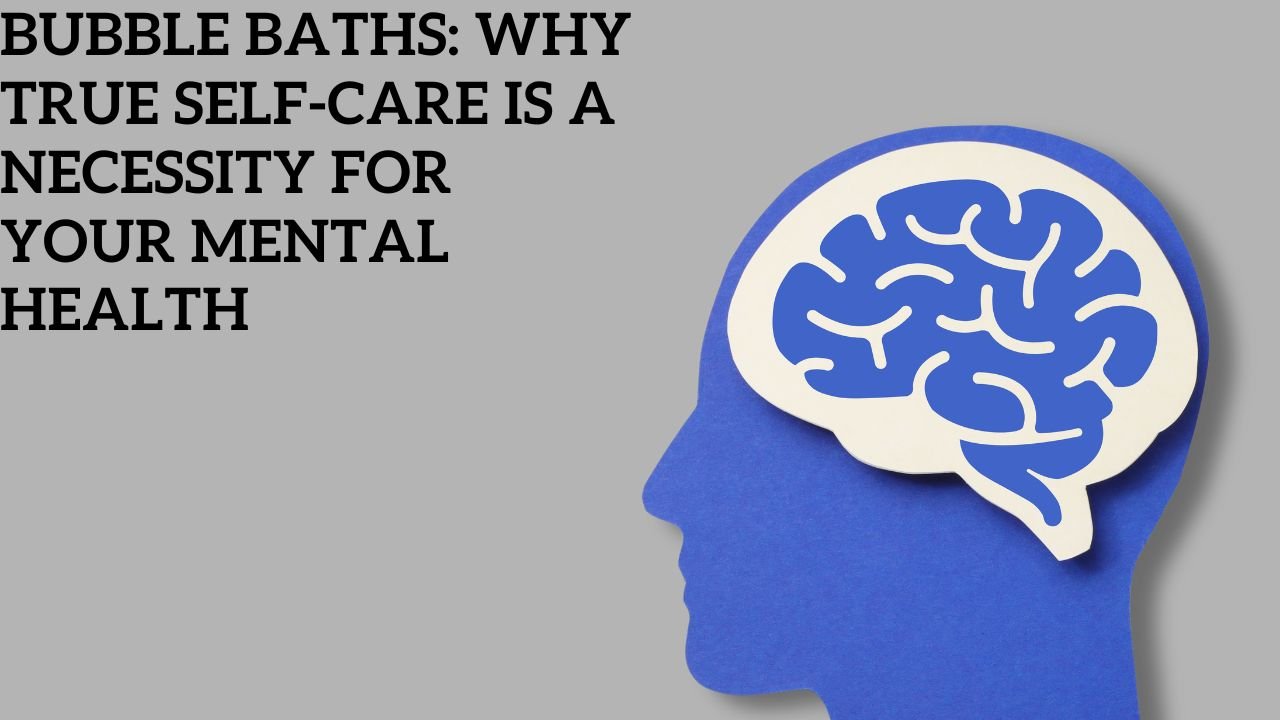In our fast-paced, always-on world, “self-care” has become a buzzword. It often conjures images of luxurious spa days, expensive candles, and bubble baths. While those things can be lovely, they only scratch the surface of a practice that is fundamental to our mental and emotional well-being.
True self-care isn’t an occasional indulgence; it’s a conscious, ongoing practice of checking in with yourself and taking active steps to manage stress, prevent burnout, and build resilience.
More than ever, we’re looking for how to manage the stress of modern life. This has highlighted the significant link between our everyday routines and our mental wellbeing. So let’s discuss what meaningful self-care actually looks like and how you can create a routine that actually helps.
What is the Actual Link Between Self-Care and Mental Health?
Think of your mental energy as a phone battery. Everything you do throughout the day—work, social obligations, managing family, even scrolling through social media—drains that battery. Self-care is how you recharge it. Without intentional recharging, the battery depletes until it hits zero, leading to what we commonly call burnout.
Burnout is not tiredness; it’s emotional, physical, and mental exhaustion brought on by prolonged stress. It’s even recognized as an occupational phenomenon by the World Health Organization.
Self-care is a preventative measure. By routinely doing activities that soothe your nervous system and give you energy, you prevent your battery from getting too low.
Scientifically speaking, activities such as mindfulness, exercise, and sleeping soundly have been proven to decrease cortisol (the stress hormone) levels as well as the levels of mood-elevating neurotransmitters such as serotonin and dopamine. So, when you indulge in self-care, you are literally altering your brain chemistry for the better.

Actionable Self-Care Practices You Can Start Today
The best self-care is individual, but there are a few practices that are helpful for everyone because they respond to the deepest needs of our nervous system. Below are the most sought-after and useful techniques.
- Mindfulness and Mindful Moments
Mindfulness is merely the act of being present in the moment without judgment. It’s a strong antidote against anxiety, which is usually future oriented or dwelling on the past.
How to do it: You don’t have to meditate for an hour. Begin with a “mindful minute.” Pay attention to your breath, sensing the air come in and out of your body. Notice the sounds around you. Or, try mindful eating by really enjoying the taste and texture of your food without distraction. These small moments can break the stress cycle.
- The Power of Journaling
Writing down what’s in your head is one of the best methods of working out emotions and clearing mental clutter. It’s a means of having a chat with yourself.
How to do it: Attempt a “brain dump” where you write down everything on your mind for 10 minutes, no judgment. Or, use a guided journal with questions like, “What is one thing that went well today?” or “What am I feeling anxious about right now?” This practice can bring tremendous clarity and emotional release.
- Setting Boundaries and The Digital Detox
Constant connectivity is a major source of modern stress. Setting boundaries, especially with technology, is a crucial form of self-care.
How to do it: Set “no-phone” times or places, such as mealtimes or in the bedroom. Switch off non-essential notifications. Plan a “digital detox” for several hours every weekend where you deliberately switch off screens and participate in an offline activity. This allows your brain a welcome break from non-stop stimulation.
- Movement as Medicine
Physical exercise is not only for the body; it’s one of the best weapons for coping with mental health. Exercise releases endorphins, which are natural moodlifters.
How to do it: Discover a type of motion you truly like. It doesn’t mean it has to be a high-intensity gym workout. It might be a nature walk, a dance exercise class, stretching, or gardening. Consistency, not intensity, is the goal.
Developing a Self-Care Habit That Persists
The intention is to put self-care into your life, not add it to your to-do list. The key to a lasting habit is small steps and being realistic.
Know Your Needs: Ask yourself, “What do I need in the moment?” Are you tired? You need rest, not exercise. Are you lonely? You need connection, not aloneness. Make your self-care fit your needs in the moment.
Schedule It: As you schedule meetings and appointments, mark off small blocks of time for self-care in your calendar. It might be 15 minutes in the morning for journaling or a 20-minute walk home from work.
Develop a “Self-Care Menu”: Develop a list of activities that make you feel renewed. Organize them in terms of time (5-minute, 30-minute, 1-hour activities) and need (relaxing, reviving, inspiring). You can simply choose an activity from your menu when you are feeling stressed, rather than having to decide.
Let Go of Guilt: Most of us feel guilty about taking time for ourselves. Replug this thinking. Self-care is not selfish; it’s necessary. You can’t pour from an empty cup. By caring for yourself, you become more present and productive in all other aspects of your life.
By making self-care a daily habit of self-respect, you create a healthier foundation for your mental well-being, preparing you to face the challenges of life with more balance and strength.











